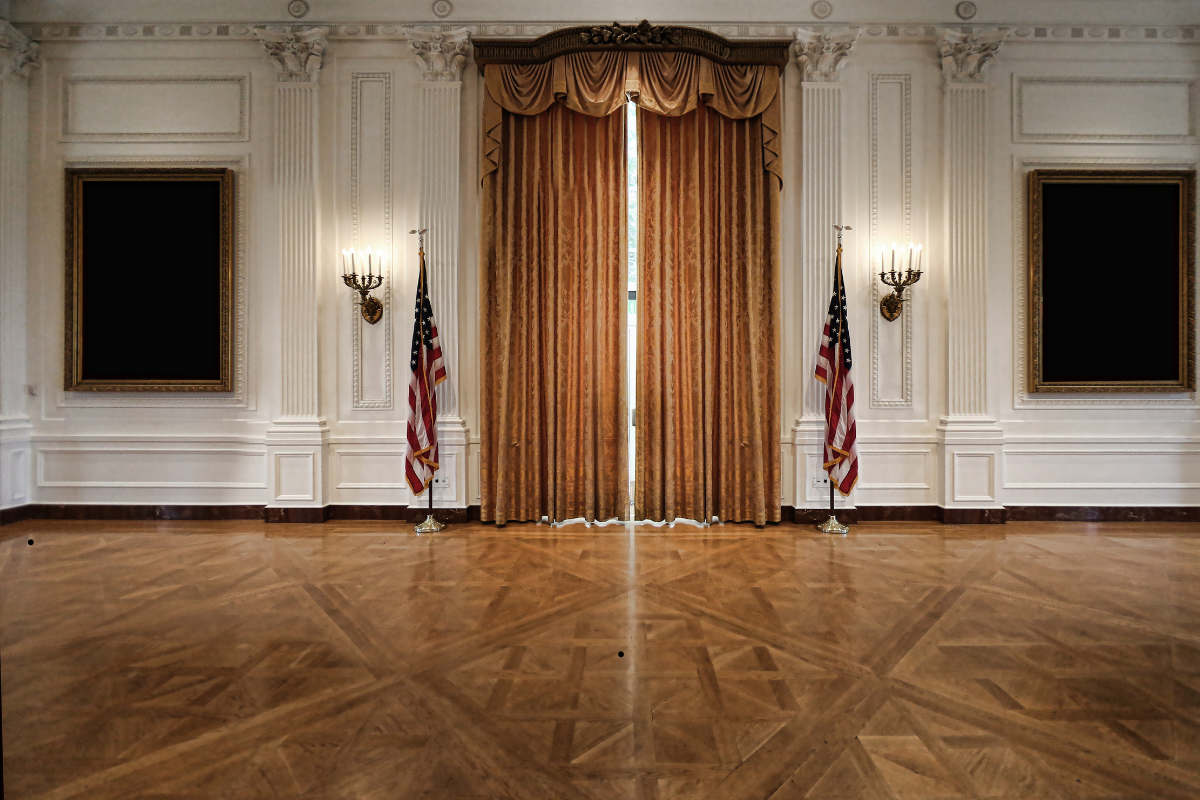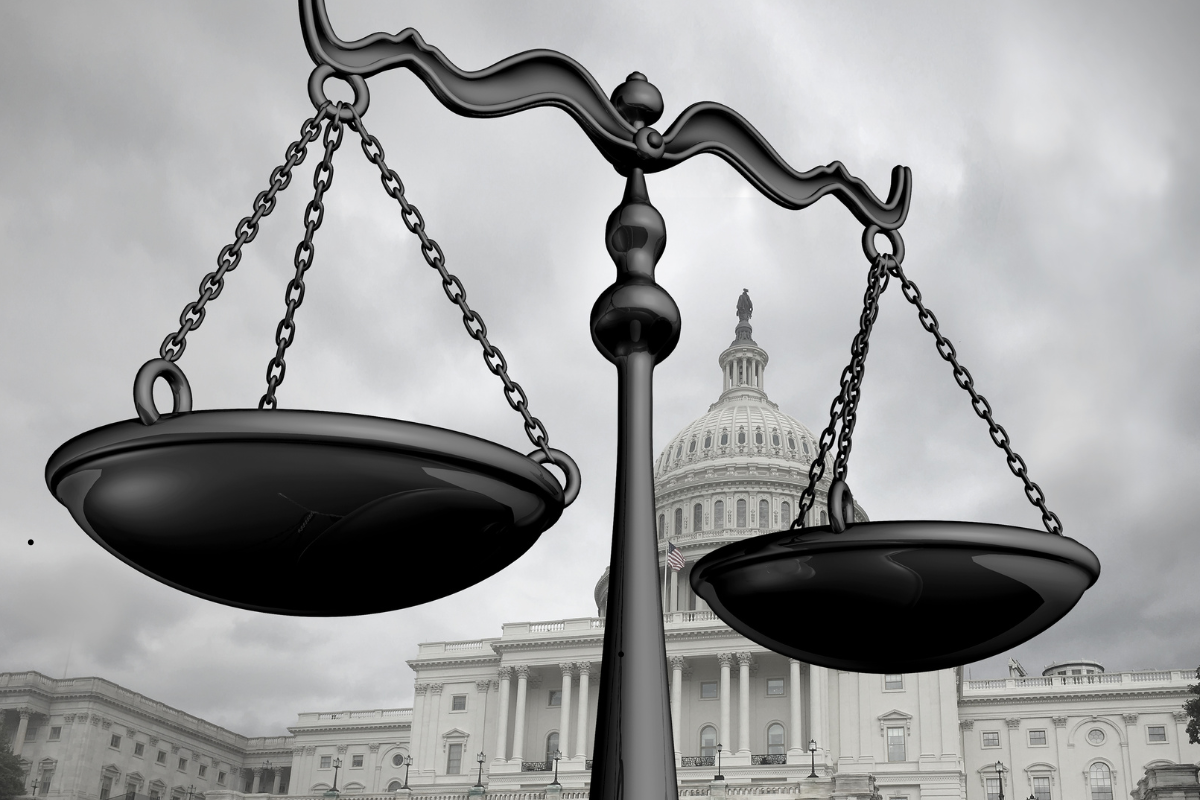Federalist 51 Part 1
Federalist 51 is easily the most well-known and the most quoted of the eighty-five essays Publius authored in defense of the Constitution. Generally attributed to Madison, and having the earmarks of his style, 51 provides a capstone to the arguments Madison made in 47-50 and pivots off those arguments to provide us with the most succinct formulation of the logic behind the constitutional structure.
By now the reader should have a clear idea of the key problem the author’s faced: how to create a government energetic enough to accomplish a broad set of purposes but yet not so energetic that it would threaten liberty? It is possible, of course, to set up a government that respects liberty not at all, or to create one so conducive to liberty that it lacks the capacity to do much of anything, but most systems of government, as Hamilton argued in Federalist 9 will fall somewhere on the continuum between those two options.
Since Publius’s central argument was that the government under The Articles of Confederation lacked sufficient energy to accomplish purposes Publius thought essential to good order they also had to convince skeptics that the increase in power would pose no serious threat to liberty. But Publius went further than that, arguing that this increase in power had the potential to render liberty less fragile.
Threats to LIberty
Threats to our liberty come from two main sources: our fellow human beings and the government. Logically, of course, we could see liberty as a threat to our own well-being if we use it poorly, and thus in need of restriction, but that mode of thinking, present in the ancient and medieval worlds, had largely been whittled away by the emerging liberal consensus of the 17th and 18th centuries, although residuals of it remained.
Disagreement occurred within that liberal consensus concerning the degree to which our fellow human beings posed a threat to our own well-being. Thomas Hobbes (1588-1679) had notoriously argued that human beings in a “state of nature” (that is, absent the existence not only of government but of civil society itself) existed in a state of the war of every man against every other man. Greed, lust, ambition, and self-interest in world of scarcity would pit us against one another, rendering “the life of man solitary, poor, nasty, brutish and short.” John Locke’s more benign state of nature still contained “incoveniencies” that made life and liberty insecure and government necessary.
Different Ideas of Government
Why we have to have government at all is a long-standing question of political philosophy. Plato and Aristotle had taught that not only do politics express our inherent sociality but become central in the development and exercise of virtue. Their way of thinking about politics, however, tended to take place within a view of history more cyclical, emphasizing the tragic rise and falls of empires that mirrored the cycles of nature. Even Rome was not immune from this. The historian Appian (referring to a lost document from Polybius) reported in his Punica:
“Scipio, when he looked upon the city as it was utterly perishing and in the last throes of its complete destruction, is said to have shed tears and wept openly for his enemies. After being wrapped in thought for long, and realizing that all cities, nations, and authorities must, like men, meet their doom; that this happened to Troy, once a prosperous city, to the empires of Assyria, Media, and Persia, the greatest of their time, and to Macedonia itself, the brilliance of which was so recent, either deliberately or the verses escaping him, he said:
A day will come when sacred Troy shall perish,
And Priam and his people shall be slain.
And when Polybius, speaking with freedom to him for he was his teacher, asked him
what he meant by the words, they say that without any attempt at concealment he named his own country, for which he feared when he reflected on the fate of all things human. Polybius actually heard him and recalls it in his history.”
This two-fold way of thinking about political life — that it is both natural and essential to human beings and necessary for their flourishing, and also hemmed in by tragedy — was broken by Christianity, which on the one hand relativized the claims of political life, subordinating the kingdom of man to “the Kingdom of God,” and also interrupting the cycles of history. through the distinctive advent of the life, death, and resurrection of Jesus of Nazareth.
This argument was made most fully by Saint Augustine in his magisterial City of God, wherein he contrasted secular history with its cycles of birth, growth, decay, and death to redemptive history, with its linear movement from the garden to the city, from the first creation to the new creation advented by Christ’s return. So what role would politics then play in human affairs? Scholars have argued that Saint Augustine saw a minimal role for government, whose sole responsibility was maintaining order by restraining sin. Individual human beings may be citizens of an earthly city, but their ultimate destiny was in the heavenly one.
Saint Thomas, incorporating Aristotle, saw a more significant role for politics, arguing that it was an expression of our rational capacities for ordering the world around us. To use a contemporary example: we don’t have traffic laws because human beings are sinful; we have traffic laws because the complex world of human interaction require some regulation in order for society to run well. A world without sin is not a world without stoplights. Aquinas saw a positive role for governing authorities in terms of shaping human conduct toward its appointed ends.
Progressive Ideas of Government
In the modern world a new way of thinking emerges, collapsing Augustine’s idea of linear (sacred) time into the operations of secular history. The resultant idea — that perfection can be brought into the historical process through human effort and achievement — might be thought of as a politics of innerworldy fulfillment. What Christianity promised as the perfect society at the end of time modern writers offered as occurring within time. This made politics the vehicle by which perfection could be achieved, thus raising its stakes significantly.
One obvious problem is that it’s clear to see how God, in his perfection and omnipotence, might bring about the peaceable kingdom, but how could human beings, in their wickedness and weakness, accomplish this? This problem admitted of two solutions. The first was to focus on human beings in their collective capacity, insisting that individual human beings might not accomplish utopia but they could when properly organized. The nation-state became the carrier of such dreams. Alternately (or relatedly), one could refer to the essential plasticity of human nature, arguing that human beings could be made perfect over time, especially if placed in the right social circumstances. These two approaches were essential motivators of progressive reform.
What does any of this have to do with Federalist 51? Madison’s view is much closer to the Augustinian one than it is to the modern progressive one. His sober analysis of the human condition is essential to understanding and appreciating the constitutional design. Nowhere did he articulate this more clearly than in Federalist 51. Keep in mind that in the previous four essays he dealt with the problem of how to keep governmental powers, especially legislative, within their appointed limits. A written constitution would be little more than a “parchment barrier,” while frequent revisions would destabilize the government entirely. In other words, he repeats Hamilton’s concern that republican government always vacillates between tyranny and anarchy.
The Constitutional Idea: Men are not Angels
If a written constitution won’t restrain the desire for more power, nor will frequent appeals to the people, then what will? Madison suggested that counting on persons in positions of power to restrain themselves was not only wishful thinking, but a recipe for disaster. We could not count on virtue to carry the day. “The only answer that can be given is, that as all these exterior provisions are found to be inadequate, the defect must be supplied, by so contriving the interior structure of the government as that its several constituent parts may, by their mutual relations, be the means of keeping each other in their proper places.”
The constitutional system had to operate isometrically, whereby the desire for power could be turned against itself by forcing occupants of the different branches of government to push back against each. In this way “ambition must be made to counteract ambition.” It was not enough, Madison insisted, to separate the powers of the different branches from one another, but the members of those branches had to be given the means to resist the efforts of others to encroach upon their powers. Think of it as a kind of stand-off whereby no one can bring a gun to a knife-fight; each government actor will have the weapon necessary to fend off the tendencies of others to cross borders, but those weapons must be largely symmetrical if they are to be effective. “The provision for defense must in this, as in all other cases, be made commensurate to the danger of attack.” Power and interest would thus coalesce around the mechanisms the constitution provided each branch to control one another.
This idea that constitutional government required using vice as a self-checking mechanism struck the Anti-federalists as radical in the extreme. How could good government ever emerge from such an adversarial process? How could unleashing vice rather than repressing it insure republican order? Wouldn’t republicanism itself require some confidence in the people and their representatives to listen to the better angels of their nature and govern accordingly? The Anti-federalist emphasis on locality and neighborliness displayed a confidence that in face-to-face interaction and shoulder-to-shoulder working together, human beings could rise above their mean estate and selfish interests and learn cooperation.
Madison’s system belied such confidence, for “what is government itself but the greatest of all reflections on human nature?” Madison reminded his readers that ”If men were angels, no government would be necessary. If angels were to govern men, neither external nor internal controls on government would be necessary.” Madison believed the Constitution solved this basic dilemma: human beings, unruly and self-interested as they are, required a governing authority; but since the government itself was operated by men, they too required a governing authority. Undoubtedly if those tasked with governing exceeded their authority, the people would retain the power to either remove them through elections or change the whole system via a constitutional convention, but the constitution offered an “auxiliary” system that bridged the gap between elections and the creation of a whole new system. The key was to see government as an adversarial rather than cooperative system. “This policy of supplying, by opposite and rival interests, the defect of better motives, might be traced through the whole system of human affairs, private as well as public.”
A System of Mutual Frustration
Madison’s constitutional design was a recipe for gridlock. It intended to frustrate rather than express popular will as well as the intentions of those tasked with governing. Perhaps his approach was sound at the level of theory, but even he realized the problems inherent at the level of practice, for it was “not possible to give to each department an equal power of self-defense.” In a republican system the legislature would always be the bully in the room, and the solution to the was to divide the legislature into two branches and keep their operations as separated from one another as possible. It would also require a “fortifying” of executive power as a way of limiting legislative. Madison’s carefully constructed political machinery would thus require constant recalibration. How and how often this was to occur, and what the possible consequences could be will be the subject of next week’s essay.
Director of the Ford Leadership Forum, Gerald R. Ford Presidential Foundation
Related Essays




